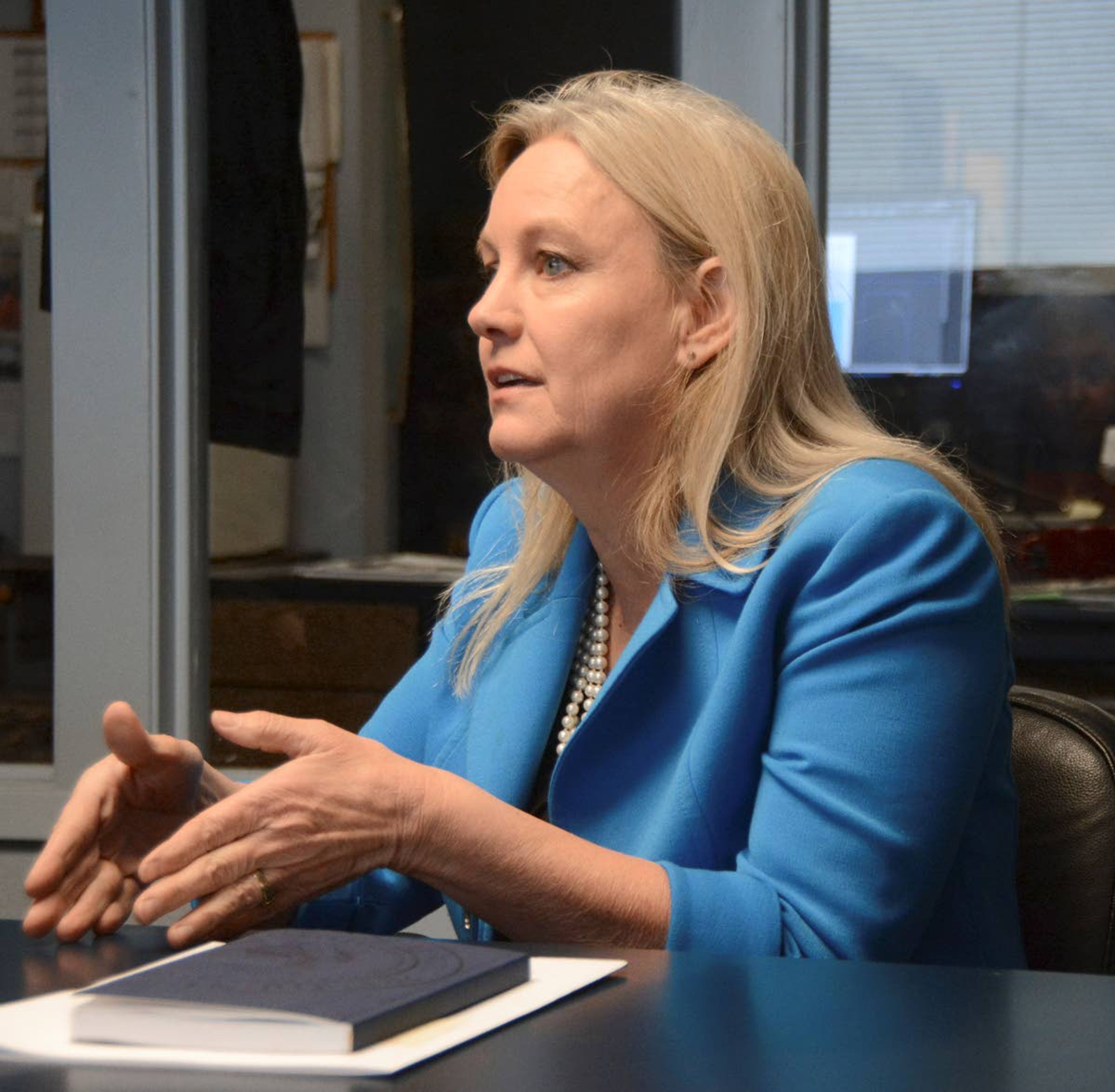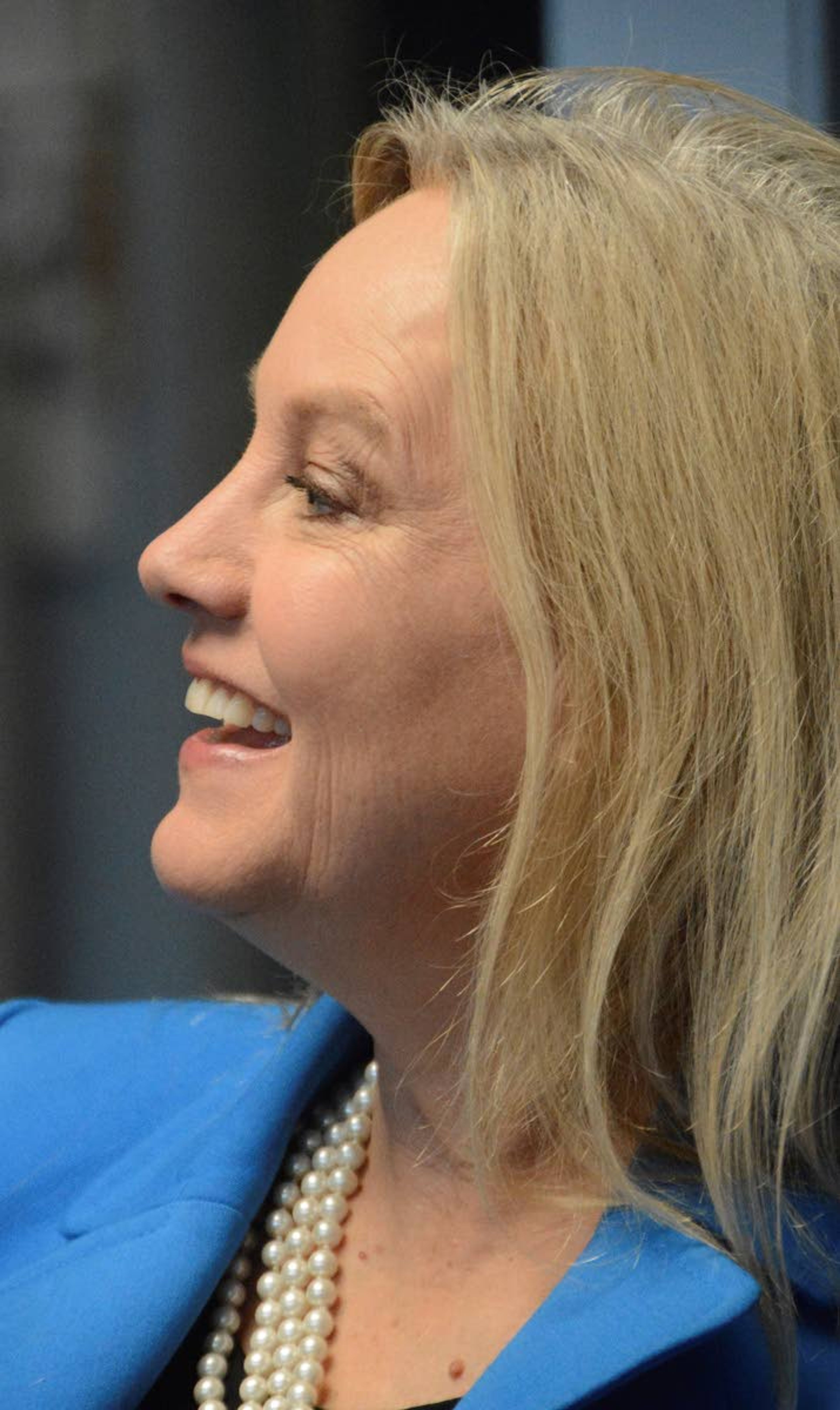State lawmaker from Pomeroy sees irrigation water as key issue
GOP Rep. Mary Dye outlines her concerns for coming legislative session
One of the most pressing issues on Washington state Rep. Mary Dye’s agenda is helping farmers and 22 small towns across the state use water from the original Grand Coulee Dam project for irrigation.
The Pomeroy Republican has made four trips to the White House in the past year to seek funding for water infrastructure in the Columbia Basin, where aquifer water levels are in serious decline.
“We’re at the point, it’s game over,” Dye said Thursday in a visit to the Lewiston Tribune. “We’ve got to get this done.”
Shrinking groundwater supplies in the Odessa subarea must be replaced with surface water, and the clock is ticking, the 9th District lawmaker said. The Washington state delegation is asking for $10 million a year for the next five years to cover the first phase.
Dye said she’s encouraged by the bipartisan support for the project and “cautiously optimistic” about the Trump administration’s continuing interest.
Communities such as Lind, Ritzville, Harrington and Moses Lake have been struggling with dwindling water supplies, and additional towns are at risk, Dye said. From Othello to the Yakima Valley, farmers depend on irrigation water to grow potatoes, onions, hay, grapes and fruit.
“I’ve been working on this with a great group of people,” she said. “We want to solve the problem. We want to use water that’s been specifically adjudicated for the Columbia Basin Project at Grand Coulee Dam and Banks Lake.”
Dye recently was elected to a second term and will serve on four House committees when she returns to Olympia this month. The 2019 legislative session begins Jan. 14.
She has been assigned to the House Appropriations Committee, which oversees spending in the state operating budget, and will continue as a member of the House Capital Budget Committee, which approves money for the construction and repair of public buildings and infrastructure.
The 57-year-old Garfield County farmer also will sit on the new House Environment and Energy Committee, serving in a leadership position as assistant ranking Republican.
“I’m excited they’ve combined these committees so we can have a discussion about the importance of preserving the Snake River dams and the value of carbon-free nuclear energy, such as the Columbia generating plant at Hanford,” Dye said.
Preserving dams is becoming more difficult with a “Seattle-centric” group of lawmakers in Olympia, but Dye believes eastern Washington has an ace up its sleeve. The four dams on this side of the state are owned and operated by a federal agency, and “there is nothing more unmoveable than the Army Corps of Engineers.”
Although Democrats have a larger majority in the House this year, Dye remains hopeful about advancing legislation important for southeastern Washington.
“Maybe we’re quiet and don’t dress up in orca costumes, but we’re here and we want to be heard,” Dye said of her constituents.
In addition, Dye will serve on the Rural Development, Agricultural and Natural Resources Committee.
“As the owner of a dryland wheat farm, I bring the voice of the farmer to the table. Agriculture is my life. We need to defend and foster the ability of our hardworking farmers to make a living without government roadblocks.”
One of her goals has been expanding broadband to the most rural areas of the state to help spur economic development and promote educational opportunities. The Port of Whitman is good example of how well it’s working, she said. At least 17 private carriers are using the public infrastructure, including Verizon customers, from Spokane to Clarkston.
“We set the stage for this idea, and it’s revolutionary in rural America,” Dye said of her broadband accomplishments. “I’m excited about this and want to make sure rural people have access (to the internet) for the 2020 online census.”
Sandaine may be contacted at kerris@lmtribune.com or (208) 848-2264. Follow her on Twitter @newsfromkerri.










